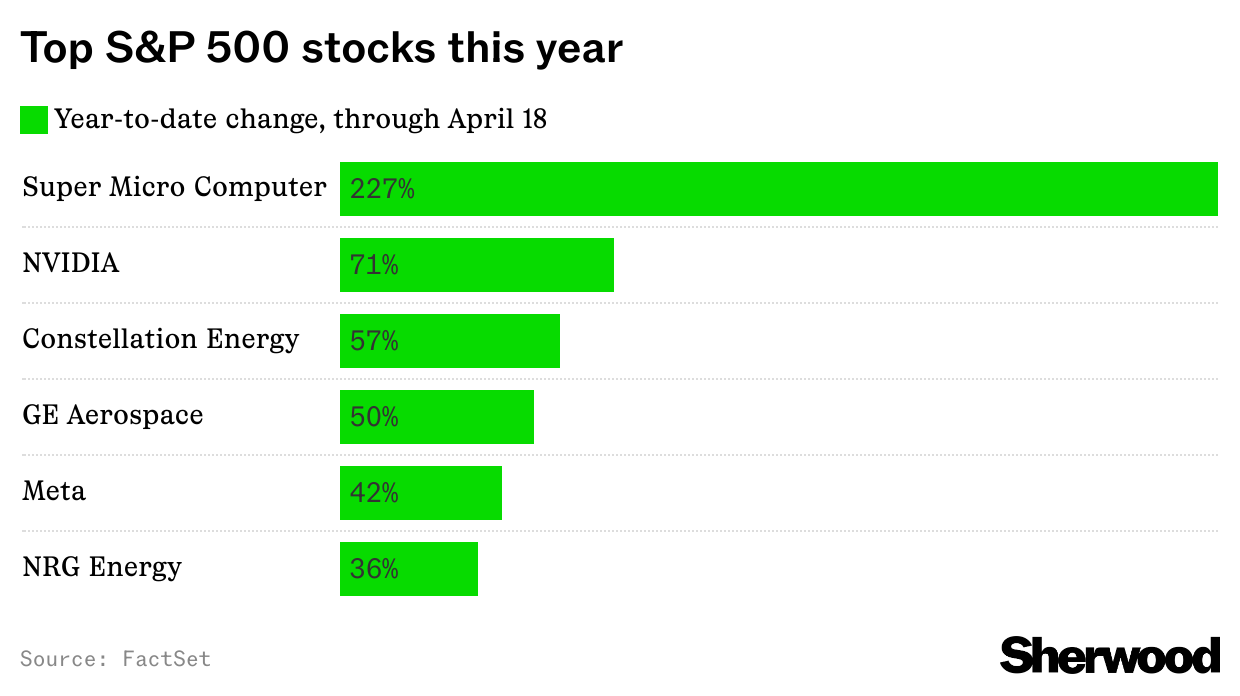Hey Snackers,
What grows in Vegas doesn’t stay in Vegas: Sin City just outlawed grass — and not the kind you think. To save water after years of drought, Las Vegas is mandating the removal of lawns.
Stocks ticked down during a roller-coaster week, which included the market’s biggest one-day plunge since 2020. The tech-filled Nasdaq led the selloff, logging its first five-week losing streak in a decade. On the plus side, the US economy added a healthy 428K jobs in April, and the unemployment rate is almost back to pre-pandemic levels.
Q for you: We’re exploring the value of a college degree for an upcoming newsletter, and we'd love to hear from you. If you’re up for being included, fill out our quick poll!
YOLO
2022 is poised to be the “catch-up year,” from constant weddings to sold-out concerts — but the splurge could run dry
Three weddings and a bar mitzvah... Dance floors and open bars have prevailed over Zoom ceremonies and seltzer cans. 2022 is shaping up to be the "catch-up year," as Americans spend big on experiences they missed over the pandemic. Inflation has been more persistent than Elon trying to buy Twitter, but consumers have shrugged off high prices, which hit a fresh 40-year high (again).
- Hawkish: The days of “money printer go brrr” are gone. The Fed started raising rates in March to tame soaring prices. Last week came the largest hike since 2000.
- Higher interest rates make borrowing pricier (think: credit-card interest) and saving more attractive (think: savings-account yields). Still...
- YOLO spending: Consumer spending surged 1.1% in March, boosted by demand for international getaways, restaurants, and hotels.
Salmon or short rib?... Too many RSVPs. The "catch up" craze means that all the nixed celebrations are roaring back:
- Weddings: Good luck finding a venue. 2022 is set to ring in the most nuptials in nearly four decades. Wedding-related indulgences are set to hit $68B, and guests are also spending more. That helps hotels like Marriott, which announced record direct bookings. Meanwhile, Signet and Tiffany's have seen diamond sales surpass 2019 levels.
- Concerts: From festivals to sold-out Billie Eilish concerts, live music is back. Live Nation said its ticket sales were up 45% from early 2019 levels, and it just posted its best first quarter ever.
- Vacays: Between spring breakers and summer planners, Booking.com raked in its highest quarterly bookings of all time. Amex saw travel spend double and Visa said summer demand is on fire.
Playing catch-up could fizzle out… The Fed’s betting it can slow inflation without causing a recession, but that’s TBD. If it tightens its belt too aggressively, Americans could tighten their wallets (recession wedding = not ideal). Meanwhile, consumer confidence dipped in April as Russia’s war, China’s Covid crackdown, and swinging oil prices all heightened econ worries. People have already started spending less on online shopping, appliances, furniture, and cars. If high inflation keeps up and savings run dry, they could cut back on experiences too.
Zoom Out
Stories we’re watching...
Ripping the Band-Aid off… The EU’s preparing to ban Russian oil by year’s end to pressure President Putin — a shift from just weeks ago. The ban will test Europe’s reliance on Russia, which supplies a third of the EU’s oil. Hungary, Slovakia, and others already said they’d need more time to ditch Russian oil. The EU ban will take 2M barrels off the market daily, which could send global oil prices — up 40% this year already — even higher. Supply disruptions have also reduced US diesel inventory to a 30-year low, stressing diesel-guzzling industries (think: shipping, energy).
(Super) Bored Ape Yacht Club… Not even Snoop Dogg can keep NFT prices from dropping like they’re hot. Last year NFTs made a splash in the crypto-sphere, becoming a $17B market seemingly overnight. But global sales are down 92% from September as traders feel the weight of inflation and high interest rates. Last week Coinbase launched its first NFT marketplace, but saw less than $60K worth of trades on its debut. With markets going haywire, collectors are less likely to splurge on a digi-ape — some are selling for less than a third of the OG price.
Events
Coming up this week...
Shifting gears... This week could be make or brake for Rivian, which reports Wednesday. The EV biz’s shares are down 75% from its November IPO after the truck maker fell short of production goals in 2021 and lowered production targets for this year. Rivian’s skid has hit its backers hard: Amazon (which owns 18%) and Ford (which owns 11%) both lost billions on their stakes last quarter, when Rivian’s losses jumped 7X from a year ago. Rivian’s IPO lockup also ends today, which gives early stockholders their first chance to sell — and could lead to a bigger selloff.
China’s retail retreat… Last week investors wiped $26B off Alibaba’s market cap on rumors that the founder of the “Amazon of China” was detained (the mix-up: same last name, different guy). The scare comes as China’s strict Covid lockdowns put pressure on the country’s economy and deter consumers from dropping cash on non-essentials (like: new clothes, vacays). Last quarter Baba posted its slowest sales growth since its 2014 IPO. China’s spending slowdown, and competition from e-comm rivals like JD.com, could deliver another blow to Baba’s profits when it reports Thursday.
ICYMI
Last week's highlights...
- Click: Ecommerce stocks like Shopify are getting hammered as the pandemic boom in e-buying (fueled by stimmy checks and boredom) loses steam. Consumers are shopping like it's 2019 — more on experiences, less on stuff.
- SCOTUS: After a leaked draft opinion revealed that the Supreme Court appears likely to overturn Roe v. Wade, corporate America's response has been mostly silent. But pushback from employees and the public could change that.
- Diverge: While Lyft is driving slow and straight, Uber is swerving to diversify. Last week’s earnings showed that Uber’s numerous revenue streams (rides, freight, food) are helping it speed ahead of ride-focused Lyft.
What else we’re Snackin’
- Haul: BNPL (buy now, pay later) lenders like Klarna, Afterpay, and Affirm are the trendy way TikTokers fund “haul” videos. But their Gen Z viewers are now racking up massive shopping debt.
- Blockbuster: Hollywood studios are bringing out the stars this summer, from Tom Cruise to the Minions, hoping they can lure crowds back to theaters. Analysts aren’t so sure.
- Vacay: The travel industry is getting into subscriptions to see whether consumers who subscribe to movie, music, and meal services will also join travel “clubs.” Flight discounts, Tesla rentals, and itineraries are all perks.
This Week
- Monday: Earnings expected from Duke Energy, Simon Property Group, BioNTech, Tyson, Palantir, Zynga, and Coty
- Tuesday: Earnings expected from Sony, Wynn Resorts, Sysco, Electronic Arts, Coinbase, GlobalFoundries, Fox Corp., Warner Music Group, Aramark, Planet Fitness, Peloton, and SoFi
- Wednesday: April CPI. Earnings expected from Toyota, Roblox, Occidental Petroleum, Disney, Rivian, Wendy’s, Bumble, Sonos, ZipRecruiter, Beyond Meat, and Krispy Kreme
- Thursday: Weekly jobless claims. Earnings expected from Alibaba, Toast, Affirm, WeWork, Mister Car Wash, Duolingo, Six Flags, Squarespace, Joby Aviation, and Canada Goose
- Friday: Earnings expected from Honda
Authors of this Snacks own: shares of Twitter, Uber, Shopify, Amazon, Disney, Tesla, and Ford
Correction: In the Snacks newsletter published May 6, 2022, we misstated that earnings were expected from Zillow and Berkshire Hathaway. They had already reported. Zillow reported on May 5 and Berkshire Hathaway on April 30. We’ve updated the online version of the newsletter, and we regret the error.
ID: 2191589
.png)

